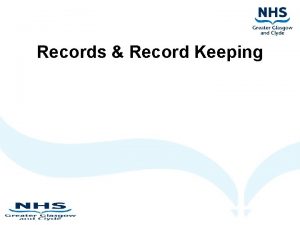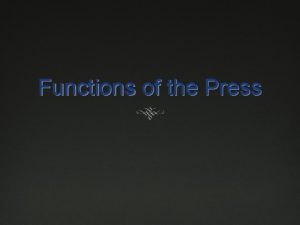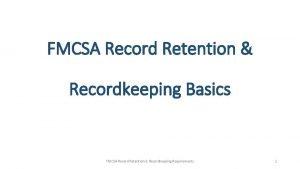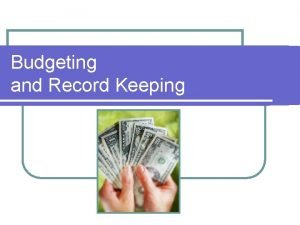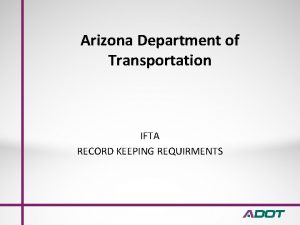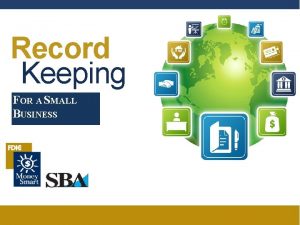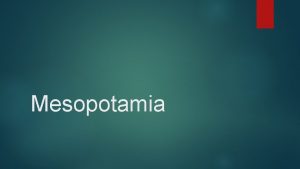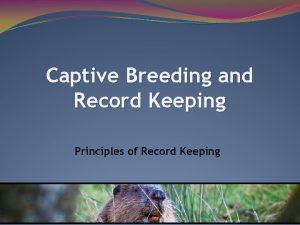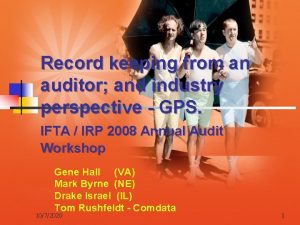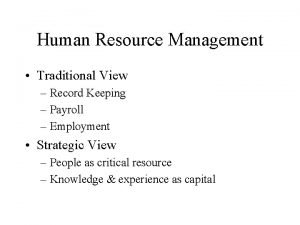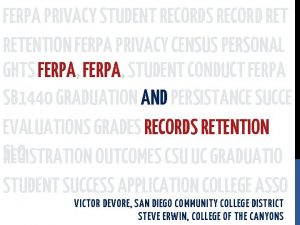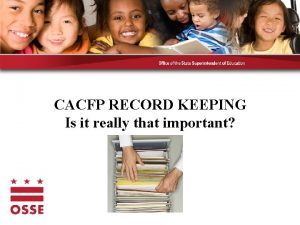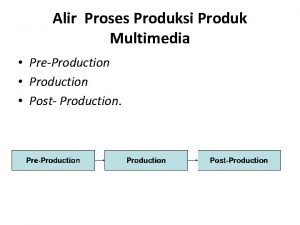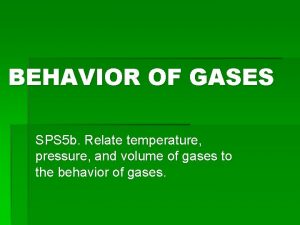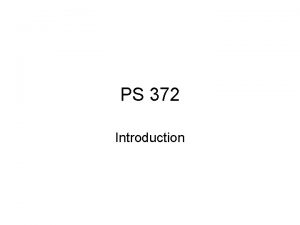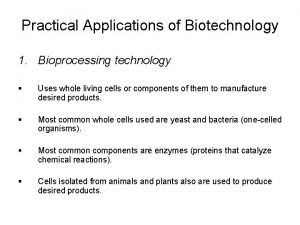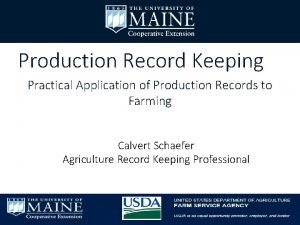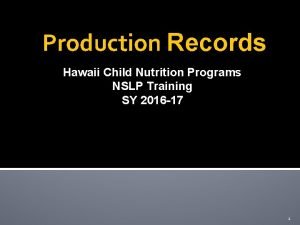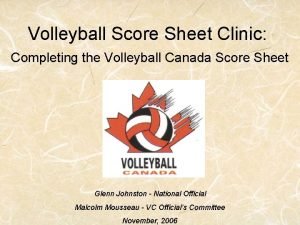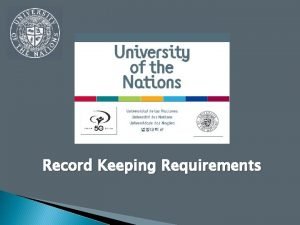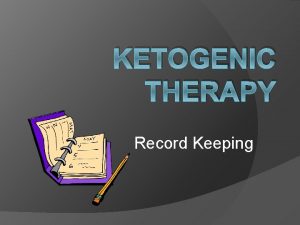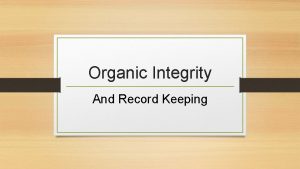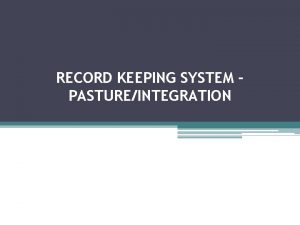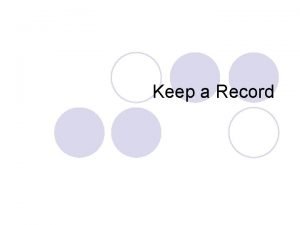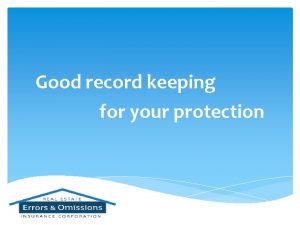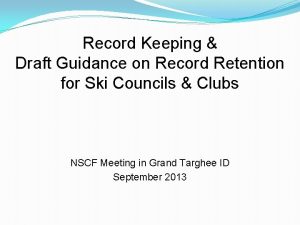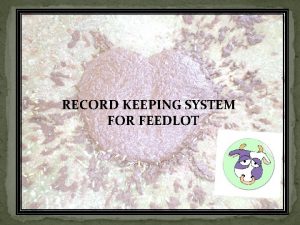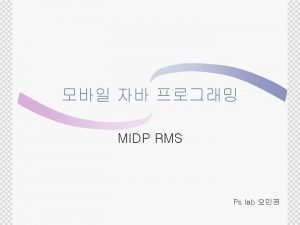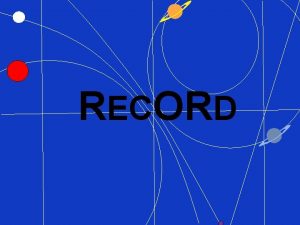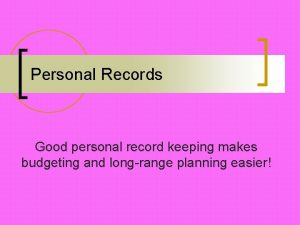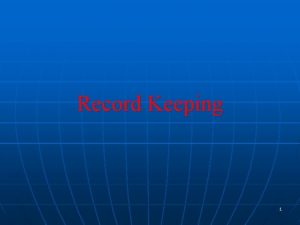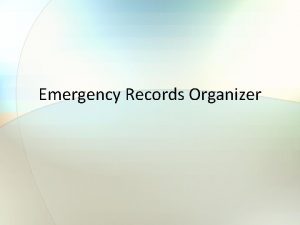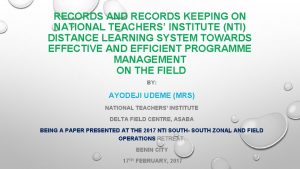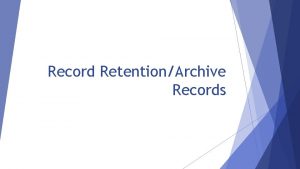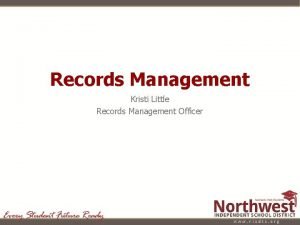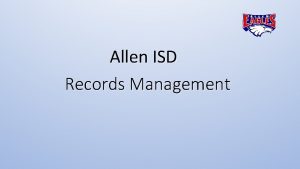Production Record Keeping Practical Application of Production Records



























- Slides: 27

Production Record Keeping Practical Application of Production Records to Farming Calvert Schaefer Agriculture Record Keeping Professional

About Me • Calvert Schaefer • Cattle, small grain, hay, produce • Agriculture Record Keeping Professional

Itinerary 1. 2. 3. 4. 5. 6. 7. 8. 9. Why Record Keeping is Important Components of Record Keeping What is the Best Option? Types of Record Keeping Options Financial Record Keeping Production Record Keeping Alternative Options Record Keeping Resources How to use technology to your advantage

Why is Record Keeping Important 1. Measurement of farm performance 2. Important for reporting purposes 3. Accurate records lead to informed management decisions about the future

Example Why Record Keeping Important • Scenario: You forget to record a $20 expense – Taxable Income by $20 • Effects: Increases your taxes! – SS tax: $3. 06 ($20 x 15. 3%) – Fed Income tax: $4 ($20 x 20%) – State Income tax: $1 ($20 x 5%) • Result: $8. 06 more in taxes

What is the Best Way to Keep Records? • There is no “Best Method” for record keeping • Consistency is the KEY to good records • How you use > What you use

Types of Record Keeping Financial – Sales – Expenses • Used for – Taxes – Financial Reports Production 1. Production by Sales • Used For – Reporting yields – Enterprise analysis 2. “Pick Records” • Used For – Variety comparison – Field comparison

Establishing Parameters for Record Keeping 1. Product type – – – Organic vs. Conventional Variety type Field of origin 2. Unit of measure – Vary by how product is sold but need to be tracked – Important for calculating total production

Record Keeping Options? • Most Common Record Keeping Systems 1. Paper 2. Microsoft Excel 3. Quick. Books • Other options 1. Square 2. Quick. Books Go. Payment 3. Many options available

Paper Records • Nothing wrong with paper records • Pros: – Ease of use – No technology required • Cons: – You do the math – Organization Ex: Packing Center shipment log

Microsoft Excel / Google Sheets • Capabilities – Customize layout to fit your operation – Data is stored in an efficient layout • Pros: – Available on all computers – Calculations are done for you – Templates available • Cons: – Data Entry – Set up and use

New England Farm Account Book Entry

New England Farm Account Book Profit/Loss

New England Farm Account Book Labor

Detailed Production Records in Excel • Tracks sales by variety from field • Identifies: – – – Product Variety UOM Price Amount Ex: Weekly farm stand sales in excel

Quick. Books • Capabilities – Bank statement reconciliation – Detailed tracking of finances • Pros: – Financial reporting – Calculations are done for you – Invoice generation – Bill Tracking • Cons: – Cost • Desktop: $227 • Online: $14/month – Initial set up

What Can Quick. Books Do for Me? Daily Operations • • • Pay bills Generate invoices Generate sales receipts Track expenses Payroll – Additional fee • Manage 1099 s Financial Analysis • Profit/Loss – – General Item Customer Class • Cash Flow • Balance Sheet • File your taxes – Requires extreme detail

Quickbooks Setup 1. Seek help from a professional 2. Find the version that best fits your needs 3. Setup Chart of Accounts – Categorize income, expenses, liabilities, equity – THIS FOUNDATION OF YOUR QUICKBOOKS USE Recommended Resources The Farmers Office By: Julia Shanks

Profit/Loss Example • Basic P/L Report • Tells us how we are doing to date

Sales By Item • Report identifies output and unit of measure • Reverse calculation using average weight to find production in lbs Ex: Sales by Item Summary Report for farm stand year to date

Other Capabilities of Quick. Books • Reports – A/P summary – Vendor reports – Class tracking • Tax Preparation – Assign income accounts to Schedule F – Income Tax Summary Report • Shows estimated taxes based on the info in Quick. Books

Comparison Paper • Pros – Simplest version – No technology or fees required • Cons – Hand calculations – Time consuming Microsoft Excel • Pros – Formulas do the math for you – Available on all computers – Best method for production records • Cons – Requires careful entry Quick. Books • Pros – Analytic Capabilities – Does most of the work for you – Best for financial records • Cons – $220 – Data entry and set up

Other Record Keeping Systems What is it Cost of Square • Point of sale software • Register – $1000 • Allows you to accept cards • Card Reader • Track cash sales • Transaction Costs • Tracking of sales – $20 -$40 – 2. 75% per swipe – 2. 5%+$0. 10 per swipe (Register) – Cash: $0. 00

Features of Square Products Analytics

Technology • Voice Recognition – Dragon • compatible with QB Pro and most computers – Voice text – Excel Voice command • Smartphones – Office in your pocket – Multiple apps available

In Conclusion 1. Find the system that works best for YOU 2. Identify units of measure 3. Be consistent with your record keeping 4. Use production records to make informed management decisions about the future – – – Plant more or change crop? What to bring to market? What is making us money?

University of Maine Cooperative Extension Increasing Access to FSA Risk Management Programs Calvert Schaefer 5741 Libby Hall, Room 119 Orono, ME 04469 207. 735. 3244 • calvert. schaefer@maine. edu The University of Maine is an equal opportunity/affirmative action institution.
 Record keeping nmc
Record keeping nmc Sentry function journalism
Sentry function journalism Fmcsa maintenance records form
Fmcsa maintenance records form Record keeping and budgeting
Record keeping and budgeting Ifta record keeping requirements
Ifta record keeping requirements Simple record keeping for small business
Simple record keeping for small business Record keeping and writing
Record keeping and writing Sssmzp
Sssmzp Soap injury evaluation
Soap injury evaluation Ifta record keeping requirements
Ifta record keeping requirements Traditional record keeping
Traditional record keeping Ferpa record keeping requirements
Ferpa record keeping requirements Cacfp record keeping requirements
Cacfp record keeping requirements Alur produksi multimedia
Alur produksi multimedia Specimen record observation
Specimen record observation Practical application of calculus
Practical application of calculus Application of boyle's law in daily life
Application of boyle's law in daily life Practical situations examples
Practical situations examples Practical application of solar energy
Practical application of solar energy State five practical application of batteries
State five practical application of batteries Polynomials used in everyday life
Polynomials used in everyday life Stokes theorem physical significance
Stokes theorem physical significance Practical application
Practical application Practical applications of biotechnology
Practical applications of biotechnology What can be found in the production record report?
What can be found in the production record report? Change layer
Change layer Nslp production record template
Nslp production record template Volleyball canada score sheet
Volleyball canada score sheet
